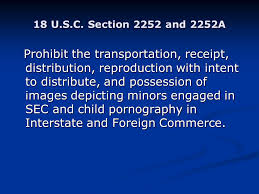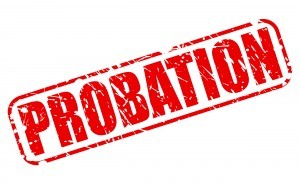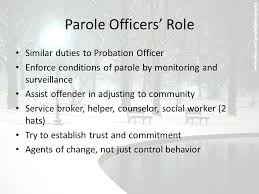District Court May Allow Modifications Of Supervised Release Under U.S. v Lussier, And Does Not Require New Or Changed Circumstances In Order To Modify Condition Of That Release
United States Court of Appeals for the Second Circuit
U.S v Parisi
Docket No.15-963
Decided May 3, 2016
Issue: Whether the District Court abused its discretion when it allowed special modification conditions of defendant’s supervised release from his probation officer where there were no new or unforeseen circumstances relating to warrant that modification.
Holding:?The United States Court of Appeals for the Second Circuit held, even though new or changed circumstances may justify a modification, United States v Lussier, 104, F.3d 32, 36 2d, Cir. 1997, they are not a prerequisite to a district court’s decision to modify the conditions of the release. Therefore, the Court held that the modification was not improper on that basis.
 The Court held that they review the propriety of a supervised release condition and modifications to the condition for an abuse of discretion, United States v Brown, 402 F.3d 133, 136(2d Cir.2005).
The Court held that they review the propriety of a supervised release condition and modifications to the condition for an abuse of discretion, United States v Brown, 402 F.3d 133, 136(2d Cir.2005).
Facts: In 2003, Parisi pled guilty to four counts of sexual exploitation of a minor under 18 U.S.C. 2251(a) and (d), and to one count of witness tampering under 18 U.S.C. 1512(b) and 2. Parisi had operated an adult pornographic website since about 1997. In August 1996, he videotaped two 15yearold females (Jane Doe #1 and Jane Doe #2) posing in a number of sexually explicit positions and then modified the images to make it appear that he was engaging in sexual acts with them
During the investigation, Parisi persuaded Jane Doe #1 and Jane Doe #2 to sign false affidavits stating that they were 18 years old when they were videotaped by him. On February 11, 2004, Parisi was sentenced to 150 months imprisonment and 3 years supervised release. He served his prison term and was released on supervision on December 24, 2014. In January 2015, the United States Probation and Pretrial Services (Probation Services) petitioned to modify the special conditions of his supervised release.
 App. at 38. Probation Services explained that these conditions are now standard conditions for the supervision of individuals convicted of sex offenses. On February 27, 2015, the district court held a hearing on Probation Services request. Just prior to the hearing, Parisi submitted a letter to the court through counsel objecting to the modified conditions. At the hearing, the court heard brief arguments by each party and requested supplemental briefing with respect to Parisi’s objections. Having considered the additional briefing and without holding another hearing, the court issued an order granting Probation Services request.
App. at 38. Probation Services explained that these conditions are now standard conditions for the supervision of individuals convicted of sex offenses. On February 27, 2015, the district court held a hearing on Probation Services request. Just prior to the hearing, Parisi submitted a letter to the court through counsel objecting to the modified conditions. At the hearing, the court heard brief arguments by each party and requested supplemental briefing with respect to Parisi’s objections. Having considered the additional briefing and without holding another hearing, the court issued an order granting Probation Services request.
Parisi filed a notice of appeal. As an initial matter, the government contends that Parisi waived this argument before the district court and, therefore, cannot raise it on appeal. See United States v. Olano, 507 U.S. 725, 733 (1993); United States v. Jackson, 346 F.3d 22, 24 (2d Cir. 2003). The Court disagrees.
Legal Analysis: The United States Court of Appeals for the Second Circuit held, even though new or changed circumstances may justify a modification, United States v Lussier, 104, F.3d 32, 36 (2d, Cir. 1997, they are not a prerequisite to a district court’s decision to modify the conditions of the release. Therefore, the Court held that the modification was not improper on that basis.
A court may modify, reduce, or enlarge the conditions of supervised release, at any time prior to the expiration or termination of the term of supervised release after considering certain sentencing factors outlined in 18 U.S.C. 3553(a). 18 U.S.C. 3583(e)(2). Parisi contends, however, that a court may modify conditions of release under this provision only where new or unforeseen circumstances specifically relating to the defendant justify the modification. Because there are no such circumstances here, he argues that the modification was improper.
As an initial matter, the government contends that Parisi waived this argument before the district court and, therefore, cannot raise it on appeal. See United States v. Olano, 507 U.S. 725, 733 (1993); United States v. Jackson, 346 F.3d 22, 24 (2d Cir. 2003). We disagree. Although Parisi conceded below that a violation of a condition of supervised release is not a prerequisite to modifying conditions of release, he argued before the district court and again on appeal that in order to justify a modification, Probation Services must present some new fact or circumstance that relates specifically to the defendant. See App. at 69 n.1. In other words, his position was and is that the court cannot base its modification determination solely on the same set of facts that it considered at the initial sentencing hearing. Because he did not waive this position below, we consider the argument on appeal.
Nonetheless, Parisi’s position is without merit. He relies primarily on our decision in United States v. Lussier, 104 F.3d 32 (2d Cir. 1997), where we noted that a district court may modify conditions of supervised release in order to account for new or unforeseen circumstances. Id. at 36. He contends that Lussier suggests that a modification of supervised release conditions cannot take place without some action by the defendant or a new circumstance in the defendant’s life that arises after the original sentence was imposed. However, this reasoning is contrary to the plain language of Lussier, which does not require new or changed circumstances relating to the defendant in order to modify conditions of release, but simply recognizes that changed circumstances may in some instances justify a modification. See id.
So long as the court, when modifying supervised release conditions, considers the relevant 18 U.S.C. 3553(a) sentencing factors, there is no additional requirement that it make a finding of new or changed circumstances with respect to the defendant. Cf. United States v. Vargas, 564 F.3d 618, 623?24 (2d Cir. 2009; see also United States v. Bainbridge, 746 F.3d 943, 950 (9th Cir. 2014); United States v. Begay, 631 F.3d 1168, 1172 (10th Cir. 2011); United States v. Davies, 380 F.3d 329, 332 (8th Cir. 2004). Accordingly, because a change in Parisi’s circumstances is not a prerequisite to a modification under 18 U.S.C. 3583(e), The United States Court of Appeals for the Second Circuit decline to reverse the district court on that basis.
